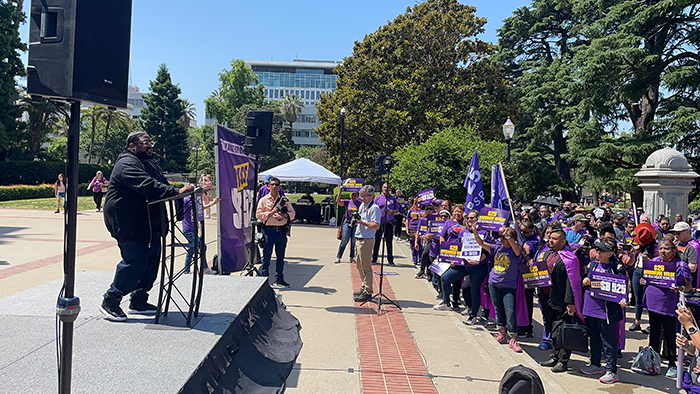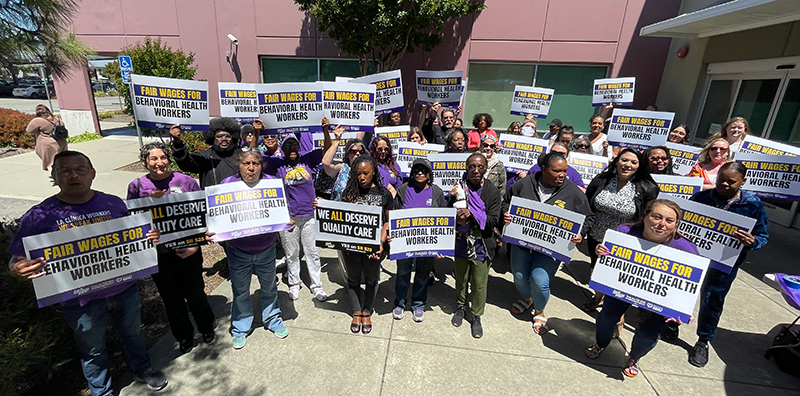
$25 minimum wage for healthcare workers heads to governor’s desk
SB 525, which passed the CA State Legislature on Thursday, is a huge win for clinic workers
Healthcare workers–especially those working at California’s community clinics–scored a huge victory last Thursday, September 14, when the California State Legislature passed SB 525.
SB 525, which has been a priority bill for SEIU, will raise the minimum wage for healthcare workers to $25/hour over the coming years. For workers in community clinics, minimum pay will increase to at least $21 in 2024, $22 in 2026, and $25 in 2027. The floor for workers at large health facilities and dialysis clinics will rise to $23/hour next year, $24 in 2024, and $25 in 2025.
Subsequently, at all sites, the $25 minimum wage would be increased annually to keep up with inflation.
“SB 525 will be very impactful for workers at community clinics like mine. Inflation has been so high, and so many of us live paycheck to paycheck. This will make a big difference for many of the lowest-paid clinics workers,” said SEIU 1021 Executive Board Member Angel Valdez, who works for La Clínica in Oakland.
“The covid pandemic also made retention and recruitment for jobs in healthcare much more difficult. Those who have been working on the frontlines in healthcare are exhausted from doing more with less in very challenging conditions. Being able to offer a competitive wage is crucial to being able to staff up and offer the best services to the clients who depend on community clinics.”
SEIU members, including from Local 1021 and other locals across the state, have been vocal advocates for the legislation, showing up to rally at the state capitol in Sacramento and visiting lawmakers there and at their home offices to share their own stories of why SB 525 is important and necessary.
Their hard work and activism have paid off. SB 525 is now headed to Governor Newsom’s desk.
The University of California-Berkeley Labor Center projected that the increase would boost wages for more than 469,000 health workers. The center estimates it would most benefit workers of color, who make up 70% of those workers, and women, who represent about 75%.
The bump would help about 40% of California’s health workers, earning them on average an extra $10,352 a year and reducing their reliance on Medi-Cal, saving between $181 million and $363 million in the second year of the wage increase, according to a legislative analysis.


